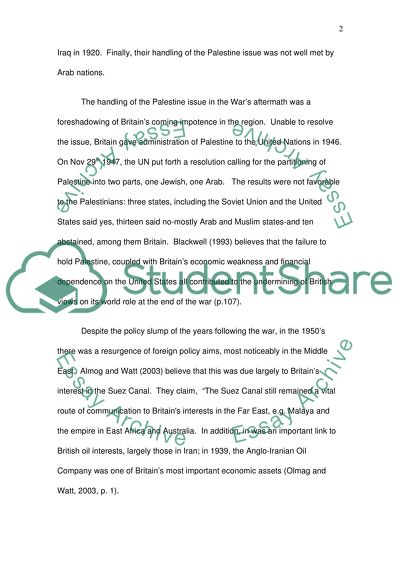Cite this document
(“Analyse the development of British policies towards the Middle East Essay”, n.d.)
Analyse the development of British policies towards the Middle East Essay. Retrieved from https://studentshare.org/miscellaneous/1523001-analyse-the-development-of-british-policies-towards-the-middle-east-from-1945-to-1967
Analyse the development of British policies towards the Middle East Essay. Retrieved from https://studentshare.org/miscellaneous/1523001-analyse-the-development-of-british-policies-towards-the-middle-east-from-1945-to-1967
(Analyse the Development of British Policies towards the Middle East Essay)
Analyse the Development of British Policies towards the Middle East Essay. https://studentshare.org/miscellaneous/1523001-analyse-the-development-of-british-policies-towards-the-middle-east-from-1945-to-1967.
Analyse the Development of British Policies towards the Middle East Essay. https://studentshare.org/miscellaneous/1523001-analyse-the-development-of-british-policies-towards-the-middle-east-from-1945-to-1967.
“Analyse the Development of British Policies towards the Middle East Essay”, n.d. https://studentshare.org/miscellaneous/1523001-analyse-the-development-of-british-policies-towards-the-middle-east-from-1945-to-1967.


